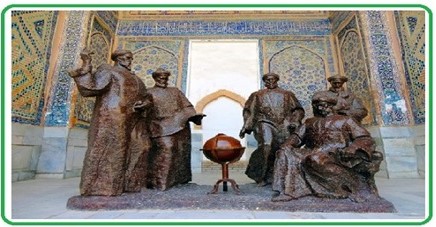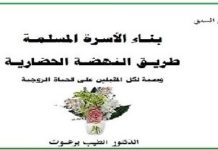By: AbdelAziz Akram, Ph.D.
Researcher, alTaraqi Center
Abstract
The ever accelerating and eventful reality in the intricate world politics imposes on every nation, with emphasis added on our MENA region, to be part of the policy making processes rather than to surrender to the logics and interests imposed by foreign forces and their respective diplomatic institutions. Founding then building local and national think tanks is critically needed in our countries. The author attempts here to tap into the experience of the already established American, European and other Asian experiences to offer teachings and guidance on launching and building up then managing an initial think tank. Further cultural and ideological directives can then be implemented once the fundamental activities get perfected and the momentum of their operational mechanisms established.
Introduction
It is worth reminding, in the beginning of this third part of the series of papers on think tanks [1], the importance and the crucial role of these organizations in the political, economic and cultural life of modern countries.
The primary purpose of such institutions is to generate ideas and debate on matters of public interest and policy. In that sense, they are both research centers and conveners, bringing together different, and often diverging, viewpoints and facilitating an exchange of views and perspectives. In terms of research, what think tanks do is similar to business consulting, intelligence analysis, investigative journalism, and/or academic research in the social sciences. However, a difference exists. The research produced by think tanks is meant to inform and to influence public policy. Their target audience is therefore mainly the policymakers in government, but ultimately the broader public.
“Think tanks also serve as a venue for political leaders, bureaucrats and military officers to exchange views and interact with other actors: foreign counterparts, the media, academics, corporate representatives and the wider public” [2]. This demonstrates all the strategically sensitive role that such centers can play. The necessity of building national and regional think tanks is therefore of utmost importance.
The world experts in the field, such as Medvetz, in his latest “Think Tanks in America” (University of Chicago Press 2012) and Stedman Jones in “Masters of the Universe”, insist that think tanks exert a tremendous amount of influence on the way citizens and lawmakers perceive the world, play a role in creating a consensus favorable to market economics, and award a great credit to the strategy and forces behind the think tanks activities in building the pillars of the policy-making arena, specifically in America.
However, and as presented in the second part of this series of papers [1], Medvetz asserts that the growth of think tanks has been so strong that it even crowded out truly independent academic research. He gives four main reasons why: 1) the economy is controlled by large holders of capital; 2) there is an imposition of market forces and jargon through the media; 3) universities are behaving more and more as corporations; and 4) the state is withdrawing funding from higher education [2]. This perspective, although appearing as the elephant in the room, reveals the type of machines that think tanks have turned into and some of the forces behind them.
This fact should motivate and guide the elite and the intellectual forces in our region to invest in catching up with the modern world to reduce or at least control the increasing and widening gap between the status of our political and government stagnation and their continuously evolving counterparts in the developed countries, by harnessing the rich experience provided by the parcours of these very countries in such a critical field.
It should be easy for any interested reader with a minimal background in the field to find, online and in the corresponding technical literature, multiple recipes for building successful and effective think tanks.
The work of Anthony Fisher (1915-1988), for ex., can be reviewed and considered as a road map to starting up and running a solid think tank [3]. Fisher founded multiple major American think tanks along three decades, such as the notorious and prominent IEA (1955), the Manhattan Institute (1978), the Atlas Economic Research Foundation (1981), the Fraser (1974) and the Pacific Research (1979) Institutes, in addition to the National Center for Policy Analysis (1983).
The observers note that Fisher’s success relates to running the think tanks as businesses with clear and strong visions, missions and objectives. Nevertheless, He still managed at the same time to keep the institutions in a “hybrid institutional arena”, at the node of the political, academic, and media fields in addition to the businessman management style. Playing an important role in each of those fields, without becoming one of them, is the secret to their triumph.
We will try in this paper to present these important aspects that may assure a minimum of prosperity to such necessary policy beacons.
The hybrid Institutional Area
Business model
In one of his letters to businessmen and donors about the need for think tanks, Fisher shared that it is necessary to have a competent [experienced, influential, and well connected] business-minded president, whose job it is to organize the institute. He has to help the research director with his programs, insure competent publication of whatever is produced, and then insure proper promotion through every channel. To resonate this position, one can notice that rare are the think tanks that have been successfully founded and managed by academics, regardless of their types, sizes and locations. The few academically run institutions that succeeded in the US are proven to have enjoyed strong and business-savvy boards and marketing teams.
Academic Standards
In practice, the selection of the research programs must be done in concordance with the selection of the right team leader (or co-leaders). This is critical to increasing the likelihood of success. An effective team leader must understand well the problems addressed in the programs and is usually already active in an informal network of people who view them from a variety of perspectives. She or he will have the technical skills to synthesize new knowledge about the addressed topics, and the interpersonal skills to effectively manage a diverse group of collaborators [4]. The leader of the think tank must ensure to run the institution with the discipline of a businessman associated with rigorous academic standards and relevance. Fisher insists that the research of a think tank “has to be, and has to be seen to be, academic, and to that end, it is necessary to have an academic advisory board to help the research director.” Fisher further notes that, “The institutes provide an outlet for those academics who understand markets and can write suitable papers.” As a corroboration to these inspiring directives, the number of new university-based centers and the number of scholar collaborations with American think tanks has been verified to be noticeably increasing [3].
The fine line with Politics
The experts insist that think tanks ought to be research and educational bodies completely outside politics. Although these policy factories’ main role is to provide politicians, inter alia, with advice, they should not be, act or profile themselves as political institutions. In the Anglo-American tradition, the book by H.S. Ferns is cited and approved by academics as an example wherein the creation of apolitical, private, independent universities in the United Kingdom was highly recommended. Fisher, on the other hand, and citing evidence of the standing of the IEA as a non-political research group, insisted again that think tanks should also not serve business interests either [3]. However, the reader is free to build her/his own rationale when reminded that Fisher was a wealthy businessman, who could easily collect funds for his think tanks from the giant British corporate and other eminent donors [5].
The Media’s key role
The importance of the media in these current times is not to be presented again. Think tanks’ experts pointed to the prominence of this fourth estate since the early seventies. The large donor institutions were encouraged to provide financial aids and supports as a quid pro quo for publishing and discriminating favorable and/or lobbying policy research by the think tank in the mainstream media. Collaborating media, having the research products of a think tank reprinted by competitive and widely circulated publications, must be considered as a critical measurable outcome of the effectiveness of the think tank.
Once these factors are considered and applied, the founders and managers in the think tanks need to take measures to vitalize their think tank in order to bring up the great supposed benefits to the thinking institutions, government policy and public discourse. Some of the measures are described as follows [2]:
- Research over convening
With the think tank activities being established through organized policy conferences, recurrent panel discussions, increasing production of books and media
and Track II dialogues (which involve non-official participants from different countries), the think tank researchers need to keep their energy and their concentration on their research work. The local/national issues in the social, economic, cultural and political arenas need to remain the special focus of all the investigation and production efforts. The regional and world influences are evidently not to be disregarded, in a world that has become so small and intertwined. A rich participation in the form of Op-eds and policy papers would be expected as useful vehicles to disseminate ideas, in addition to the truly detailed and path-breaking work.
- Quality over quantity
Think tank scholars ought to be among the most knowledgeable experts in their fields. Consequently, these intellectual tanks must be able to compete for talent work-force with the private sector, universities and foreign organizations. On the other hand, the think tanks should invite retired civil servants and military officers. These former officials present a wealth of involvement in addition to hands-on experience and skills to offer. Infusing such a group of experienced staff with fresh, dynamic and new generations of researchers should constitute the right pool of talent needed for the actual and future demanding and complex policy needs. The result of the investment should be a multidisciplinary team vested in regional and topical expertise with a variety of disciplines such as history, economics, and area studies, in addition to political science, and a mastery of languages.
No one can deny that the MENA region, excluding Turkey and perhaps Iran, and compared to the other developing regions, critically lacks the requisite expertise in such a field with flagrant deficiencies in modern economics, finances and taxation, in media and new technologies, and in policy making within truly democratic and naturally partisan environments. Remedies to these paucities is a must. Establishing foreign collaborations and establishing a mixed peer review process for the initial work and publications will also help improve the quality of output across the board.
- Autonomy and transparency
Despite the fact that think tanks are institutions “doing business” with the government, it is imperative for their success to not be considered or to become as extensions of the government ministries, rigidly hierarchical, risk-averse, bureaucratic, status conscious, and driven by patronage. The experts remind that the entire raison d’être of think tanks is to overcome these very constraints.
The privately funded think tanks, on the other hand, have to show they are not beholden to their donors and benefactors if they are to retain their credibility, which is their priceless capital/asset. Transparency about the funding sources allows the stakeholders and the public in general to draw their own conclusions about the nature of any research. Part II of this work can be reviewed for this matter.
- Interactions with government
The interaction of the think tank’s scholar with the military and government can be mutually beneficial. In the developed countries, the experts are allowed, and even empowered, to migrate between think tanks and government positions. In our countries, however, the intricate nature of the regimes and governments in addition to the career bureaucracy, known in all developing and under-developed regions, forbid such career paths. In India for example, the lack of interactions with officials resulted in think tanks generally misinformed. Many of their recommendations –while well-intentioned– are simply impossible to implement, failing to take into account bureaucratic processes, political realities or resource constraints. From this experience, we conclude that by establishing cooperative bridges with the different arms and branches of the government and taking on more advisory work, think tanks would increase the expertise available to officials while becoming better-informed about government priorities and processes.
- Usable Research
One of the differences between policy research and other fields is that it cannot simply dwell on the past, but must have implications for the present and future. The core work of think tanks has to be necessarily analytical, rather than descriptive.
More specifically, think tanks need to readily offer for example new conceptual frameworks as shorthand for policies. Such contributions can be extremely time sensitive for officials when requiring specialized expertise and pressed for time.
Policy research must also be easily accessible to inform these officials or to shape the public debate, especially in a time of information overload and time constraints. Branching out into online content and multimedia presentations, such as podcasts, videos and interactive information platforms are a must for this purpose. Customizing the format and length of the products according to the audience remains a challenge, as in this “twitter era”, verbosity is too often equated with erudition.
Additional technical and managerial aspects such securing finance, fund management and human resource management need also to be considered for a successful and solid institution [6].
CONCLUSION
In this very perilous time in the region where we notice an increasingly hostile and often ill-informed public discourse, the existence of think tanks is a must and their contribution to the public policy and public awareness arenas becomes fundamentally required. With the few considerations presented here above, think tanks can at least strive and contribute effectively to the development and prosperity of their respective countries, and eventually of the whole region.
References:
[1] – Dr. A Akram, Think-Tanks (Part one): https://altaraqicenter.org/en/2017/03/30/think-tanks-contrasting-role-and-influence-across-the-worlds-regions-part-i-introduction/
– Dr. A Akram, Think-Tanks (Part two): https://altaraqicenter.org/en/2017/06/15/think-tanks-part-two-between-the-promising-vision-the-arduous-reality-and-the-challenging-politics/
[2] D. Jaishankar, OP-ED “Can India’s Think Tanks Be Truly Effective?”, The Huffington Post (04/20/2016).
[3] A. Chafuen,“Think Tanks In America: Occupying A Unique Space”, Forbes magazine (04/10/2013)“.
[4] L. MacDonald and R. Levine, “A 12-step program for policy change”. Center For Global Development Essay, Feb (2008).
[5] D. Stedman et al. “The Neoclassical Couter-Revolution and the Ascendancy of Business” in the collection edited by R. Skiedelsky and N. Craig “who runs the economy? The role of Power Economics”, Springer 2016.
[6] N. Krishna “Think Tank Effectiveness – An outsider view” (12/01/2014) Onthintanks.org




